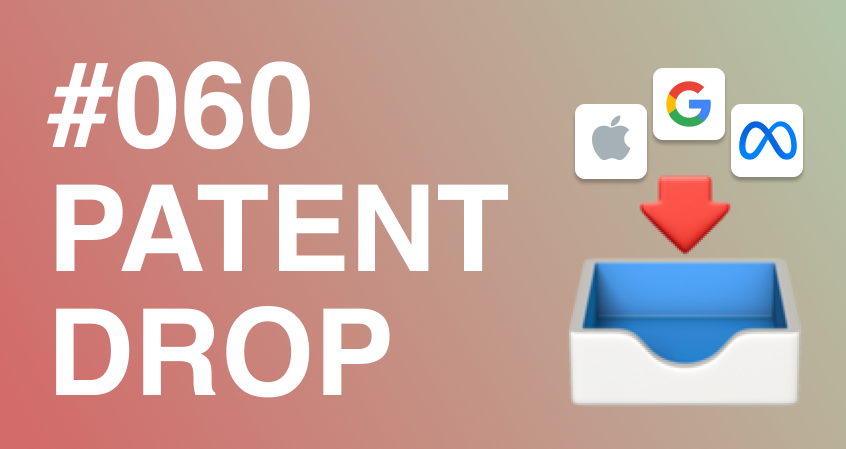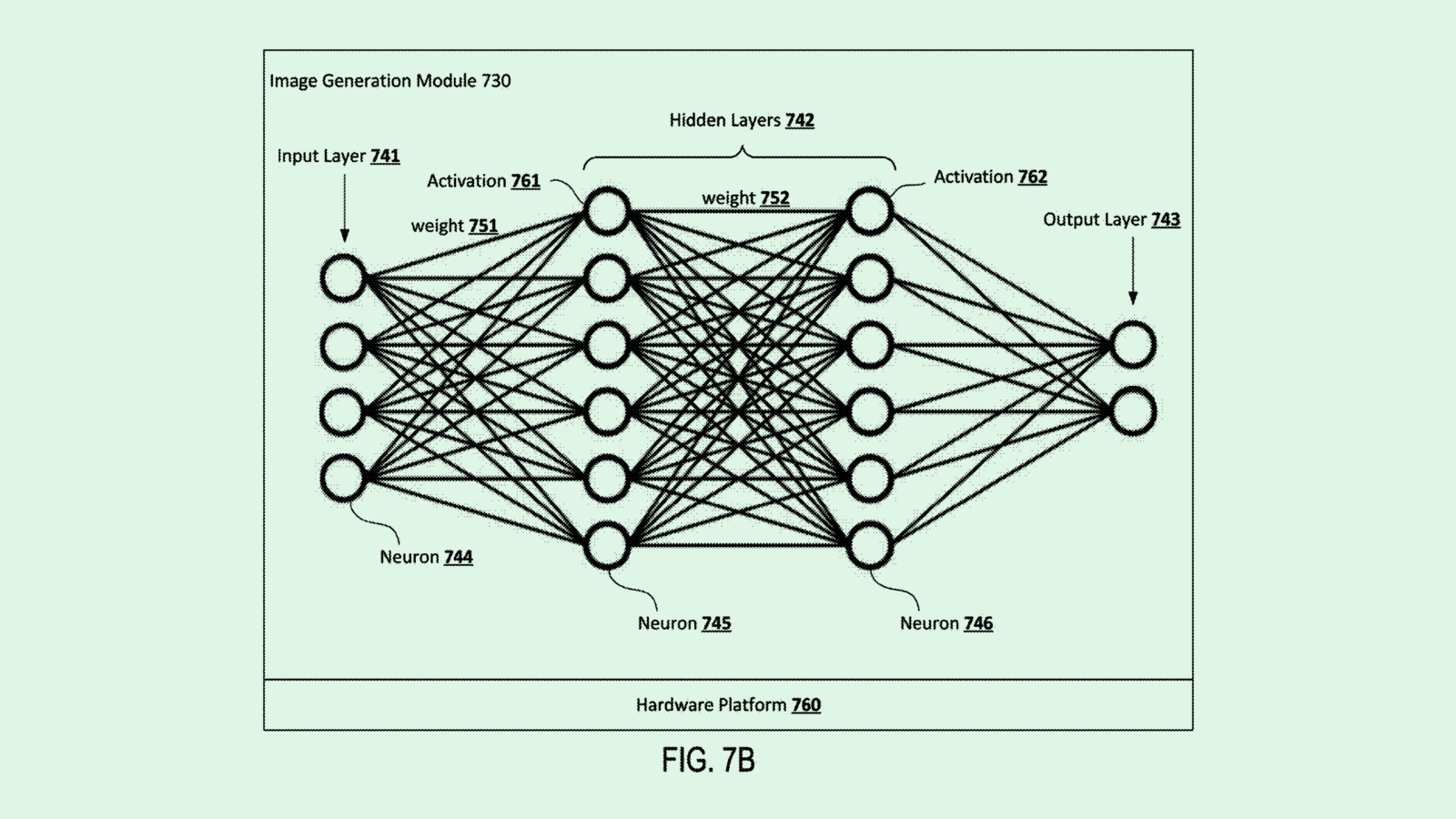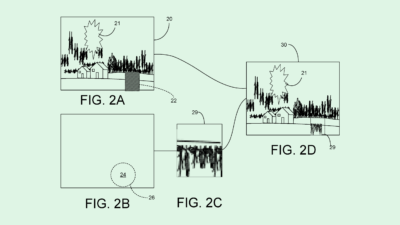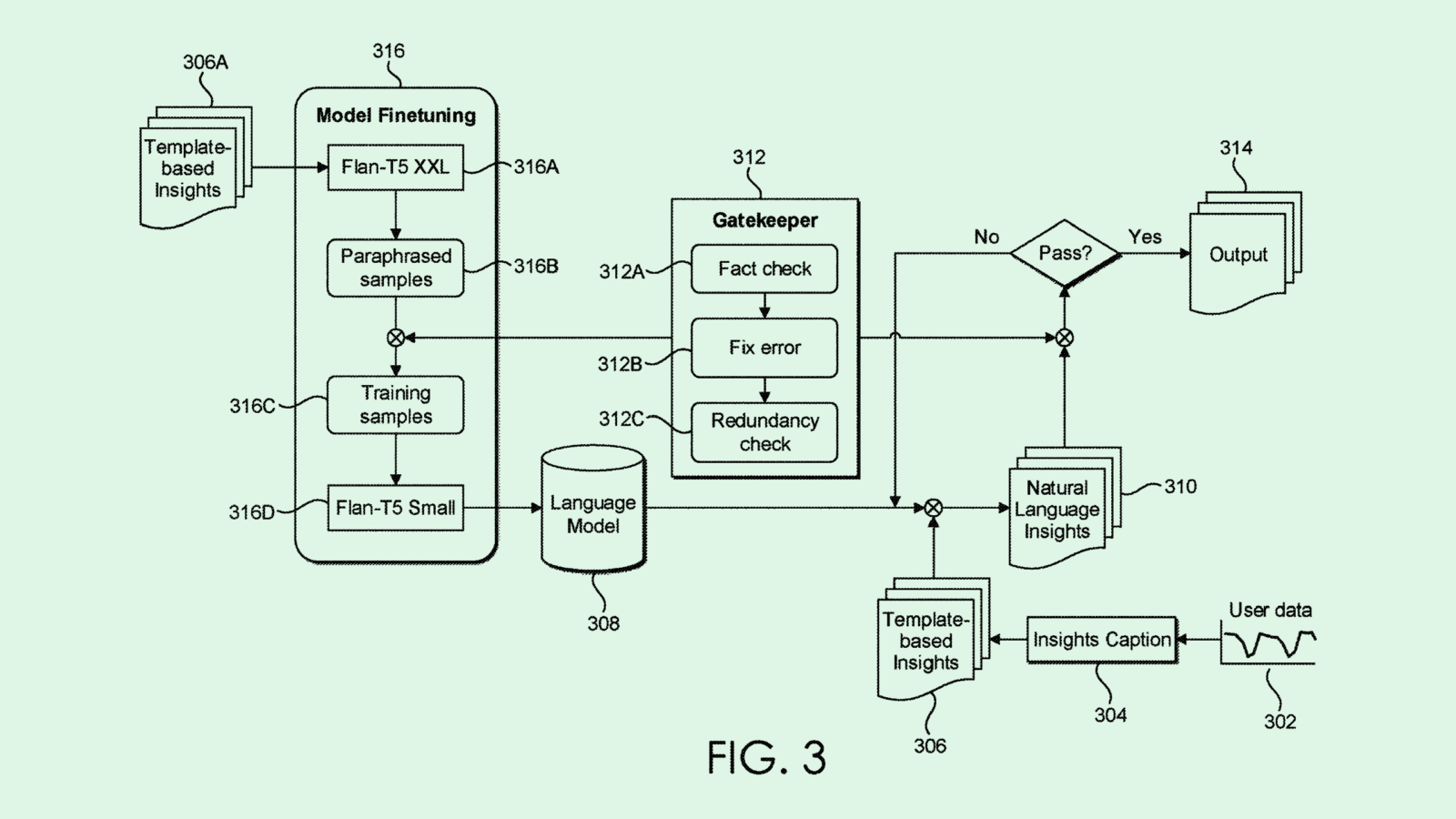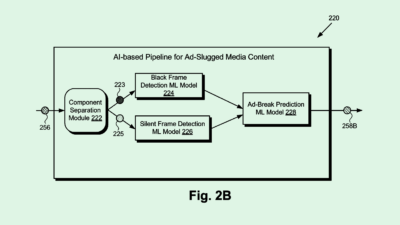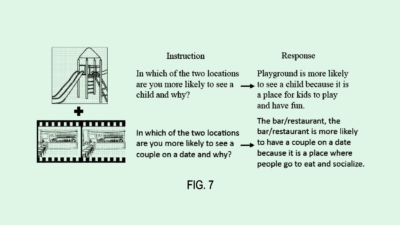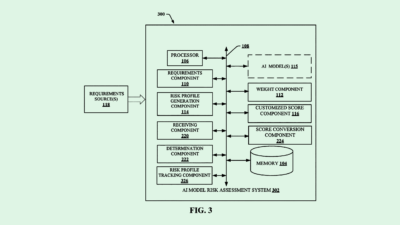Sign up to uncover the latest in emerging technology.
Apple, Meta and Google’s plans for a hands-free metaverse.
Happy Monday and welcome to Patent Drop!
Today’s Patent Drop is brought to you by Apis Cor — a startup solving the extremely pressing housing shortage across the country. Apis Cor’s 3D printing approach is poised to disrupt an industry in need of innovation. Learn more about Apis Cor here and invest in the future of housing.
Physical tracking seems to be a running theme here at Patent Drop. Today, we’re looking at companies that want to get inside your head: Google wants to read your brain waves, while Apple and Meta want to read your eyes. Why? For the metaverse of course.
Let’s dive in.
#1. Google’s mind games
Google wants to read your mind.
The company seeks to patent technology that uses “quantum sensors” in AR and VR headsets to monitor “magnetoencephalography (MEG) signals” (a.k.a. brain activity) which could control extended reality applications. For example, a user might be able to control the movement of an extended reality avatar just by thinking about it. If you feel joy, that might trigger a “corresponding response” from an avatar to express it.
Google has offered a range of extended reality headgear, ranging from its Daydream View headset to Google Glass to a headset made of literal cardboard. While Google hasn’t been as loud about its AR work as others (*cough cough* Meta *cough cough*), this patent application may signal that it’s ready to dive in deeper. And a hands-free user interface might be the way to garner more of the metaverse market, David Smith, founder and CTO of Croquet.io, told me.
“The traditional approach that people have of keeping your arm up in the air and doing stuff doesn’t really work well,” said Smith. “They’re thinking about the problem the right way: They’re getting me away from putting my arm up there.”
A device that gives users control of their virtual environment might feel akin to having The Force, but one concern that users should have is who’s actually in control, Smith told me. “This thing is sensing you, but it’s also training you in a certain way,” he said. “Whenever you have this very direct feedback loop between what your brain is doing and the actions that occur, that feeds back into the brain that modifies how your brain works.”
Another concern? The cost. Google has faced the fires of the recession in recent weeks, responding to a major slowdown in digital ad earnings by laying off 12,000 employees. But even with a possible recession, it might be in Google’s best interest to keep up its extended reality investment and research, Kamales Lardi, CEO at tech consulting firm Lardi & Partner Consulting, told me.
“In my view, the mass layoff is the easiest and quickest way to reduce costs in the short term and a reaction to overstretching during the coronavirus pandemic,” she said in an email. “These companies should stay the course of their investments in the Metaverse innovation, particularly as the longer term potential could prove beneficial.
#2. Meta’s knowing glance
While Google is reading your mind, Meta is reading that look in your eyes.
The company wants to patent tech for its VR headsets designed to pin objects or notifications in its metaverse using your gaze. Here’s how it works: When a user receives a notification and looks at it while in a Meta VR headset, the notification is locked or pinned to one place, “allowing the user to move her head to bring the notification to the center of her field of view, move closer to the notification to make it larger, move around the notification to see aspects from different angles.”
Like Google, this kind of tech could help make its user experience more attractive. Making its metaverse hands-free could help boost its sales of consumer electronics and in turn, bump user numbers on Horizon Worlds, Meta’s VR platform that hasn’t gotten as much attention as the company may have hoped.
“Think about how powerful your eye is, if your eye could be the cursor,” Smith said. “That’s a perfect example of a good kind of user interface and that’s also very natural.”
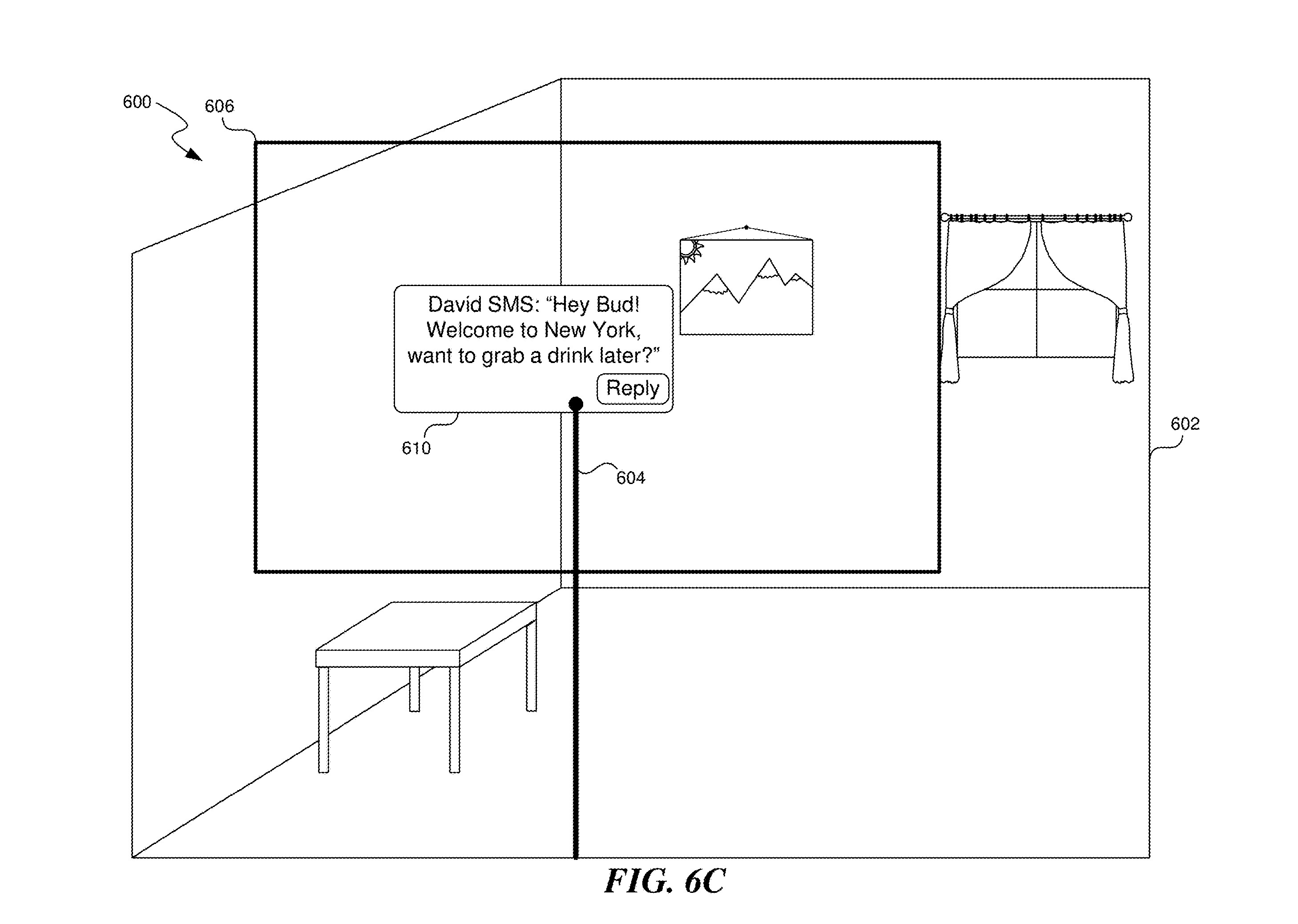
Like many Big Tech players, Meta appears to have its sights set on transforming its business model to focus on the nascent metaverse sector as the digital ads economy suffers, but Meta’s approach differs wildly from its competitors. The company has invested way, way more on its metaverse concept, pouring in $31 billion and acquiring nine VR studios in the past few years. Like its competitors, however, Meta is not immune to the recession on the horizon, slashing 11,000 employees last year, including some at Reality Labs, its AR and VR unit.
“These tech companies are taking short-term actions to prepare for a potentially negative economic climate,” Lardi said. “Google’s investment in the metaverse seems to be continuing and intact due to funding from Alphabet, however Meta is facing a harsher situation due to its ambitious plans falling short of the intended outcome.”
SPONSORED BY APIS COR
Is 3D Printing The Solution To Our Housing Needs?
Over the next 80 years, the world will need 2 billion new homes to keep up with demand.
Traditional building methods typically take anywhere from 7 to 12 months to build a house – and up to 8 weeks to get the walls up alone.
Safe to say, that just isn’t going to cut it.
But with Apis Cor’s 3D printing approach to construction, affordable housing is looking a lot more promising. This award-winning construction company is tapping 3D printing technology to bring building into the future, with:
300% faster construction speed
Up to 30% cheaper costs (without compromising on safety)
A groundbreaking solution to the labor and material shortages plaguing the US market
Clearly their idea has support – Apis Cor already has 4 patents, 117 letters of intent from construction companies across the country, and a projection of 20,000 new houses annually by 2027.
And now, you can invest in them right here.
Their StartEngine has already raised almost half a million at a $134M valuation, and comes with a ton of investor perks (like behind-the-scenes construction visits, overnight stays in Apis Cor houses, Q&A’s with their directors, and more).
Get a peek inside the 3D printing construction world by visiting their StartEngine here.*
#3. Apple’s ad-free advantage
If Meta and Google are researching something, you better believe that Apple’s on the pulse too.
Apple wants to patent tech that can track users’ eye movement in order to direct what it calls a “virtual agent” to “perform an action based on the updating and scene information associated with the electronic device.”
To break it down: rather than directing this virtual agent (i.e. a virtual animal, avatar, robot, etc.) to move in a certain way by tapping a screen or issuing a command in some other way, this device would track your eye movements to point the agent in the right direction. Apple noted in the application that this could be for AR, VR or mixed reality environments.
“User interaction is often cumbersome, such as when a hand of the user moves across an environment towards a virtual agent…Accordingly, the user interaction may result in user discomfort, resulting in the device receiving inaccurate user inputs and degrading the user experience as a whole,” Apple said in the application.
This tech isn’t Apple’s only hands-free invention: The company is reportedly working on tech to allow users to make AR apps using Siri for its mixed-reality headset.
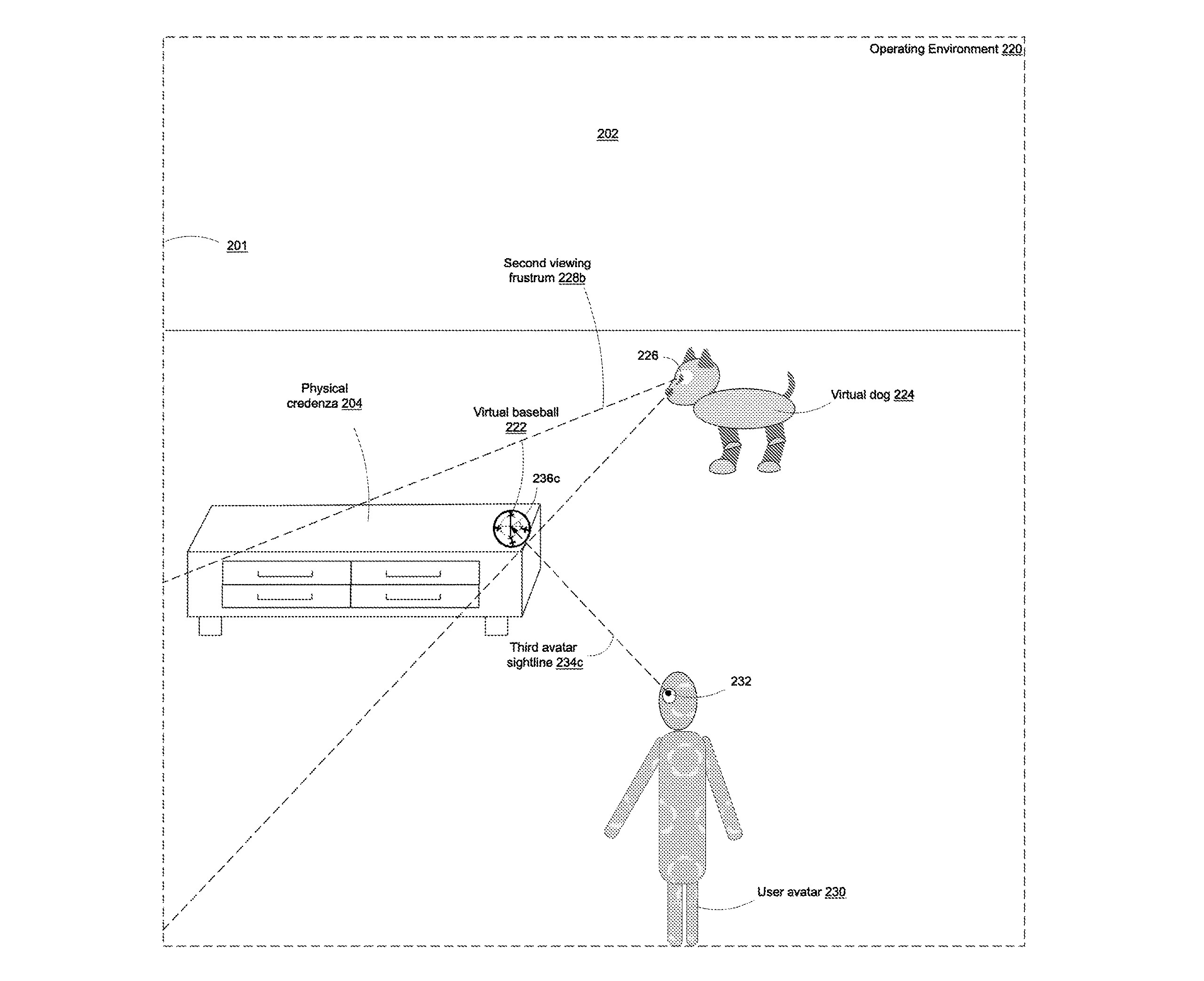
Apple has managed to be one of the few companies that have avoided massive layoffs, instead hitting the brakes on hiring early on and CEO Tim Cook taking a 40% cut to his salary. But the company’s slower pace of growth hasn’t stopped it from making similar investments in metaverse tech, including an AR/VR headset that could make its debut this spring.
Apple’s success in tackling the metaverse will differ from Meta and Google by one fundamental factor: Apple’s earnings rely mostly on consumer electronics, while Meta and Google both heavily rely on digital advertising. The company’s profit margins and dominance in the consumer electronics space allow it to devote more time and resources to product development and innovations that aren’t beholden to advertising needs, Alex Herrity, co-founder of creator AR platform Anima and former director of metaverse strategy for Fortnite, told me.
“This reduces Google and Meta’s ability to build VR and AR use cases that exist without a space for brands,” he said in an email. “(That’s) a detriment to the emergence of those mediums, which are too young in their development to be thought of as primarily a space for advertising.”
Extra Drops
Haven’t had enough tech patents for one day? Here are a few more cool ones.
Disney might be making an AR Infinity Gauntlet. The company filed an application for a gameplay system with “play augmented by merchandise” for its parks, in which a user puts their hand into a glove and for an interactive AR experience. (Don’t worry though, this shouldn’t cause “The Blip.”)
Meta wants to help you do your chores. The company seeks to patent AR tech which points out in the display things that need to get done around your house, like the dishes you need to put away or the laundry to pick up. Who needs a to-do list?
Microsoft wants you to know if you’re an energy hog. The company is looking to patent a system that generates a rating for how much power is consumed by computing devices or applications. The company said in its filing, “There is presently no way for a user to make an informed choice between the applications based on environmental impact.”
What else is new?
TikTok CEO Shou Zi Chew will testify before the House Energy and Congress Committee in late March to discuss the app’s privacy concerns.
Chinese search engine Baidu plans to launch its own version of ChatGPT in March, Reuters reported.
An Apple analyst predicts that Apple will release a foldable version of the iPad, which could hit mass production as soon as 2024.
How did Citadel return 31.8% last year when the S&P collapsed 20%? Here’s a hint, it has nothing to do with financial wizards they keep in an old castle. It’s all about quant-driven investing. Now, Composer is putting the power of quant in the hands of regular investors with their game-changing super-app. Pick an investment strategy, backtest it with their no-code tools, and explore what it can do for your portfolio. Discover why over $1 trillion is managed by quant funds with Composer today.
Have any comments, tips or suggestions? Drop us a line! Email at nat@thedailyupside.com or shoot us a DM on Twitter @patentdrop.
*Disclaimer: The sponsored content in this newsletter was written and/or published as a collaboration between The Daily Upside’s in-house sponsored content team and a financial partner of The Daily Upside. Although the piece is not and should not be construed as editorial content, the sponsored content team works to ensure that any and all information contained within is true and accurate to the best of their knowledge and research. The Daily Upside may receive monetary compensation from the issuer, or its agency, for publicizing the offering of the issuer’s securities. This content is for informational purposes only and is not intended to be investing advice. This is a paid ad. Please see 17(b) disclosure linked in the campaign page for more information.
